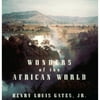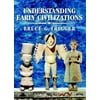Updated On April 7th, 2025
Looking for the best Civilization History Books? You aren't short of choices in 2022. The difficult bit is deciding the best Civilization History Books for you, but luckily that's where we can help. Based on testing out in the field with reviews, sells etc, we've created this ranked list of the finest Civilization History Books.
| Rank | Product Name | Score | |
|---|---|---|---|
| 1 |

|
Nonzero: The Logic of Human Destiny, (Paperback)
Check Price
|
92%
|
| 2 |

|
The Classical World : An Epic History from Homer to Hadrian (Paperback)
Check Price
|
0%
|
| 3 |

|
Intellectuals: From Marx and Tolstoy to Sartre and Chomsky, (Paperback)
Check Price
|
0%
|
| 4 |

|
Wonders of the African World (Hardcover) by Henry Louis Gates, Lynn Davis
Check Price
|
0%
|
| 5 |

|
Pre-Owned, 1434: The Year a Magnificent Chinese Fleet Sailed to Italy and Ignited the Renaissance, (Hardcover)
Check Price
|
0%
|
| 6 |

|
The Philosophy of Civilization (Paperback)
Check Price
|
0%
|
| 7 |

|
China's Buried Kingdoms (Hardcover) by Time-Life Books, Dale Brown
Check Price
|
0%
|
| 8 |

|
Understanding Early Civilizations: A Comparative Study, (Paperback)
Check Price
|
0%
|
| 9 |

|
Anarchism : A Collection of Revolutionary Writings (Paperback)
Check Price
|
0%
|

Our Score
In his bestselling The Moral Animal, Robert Wright applied the principles of evolutionary biology to the study of the human mind. Now Wright attempts something even more ambitious: explaining the direction of evolution and human history-and discerning where history will lead us next. In Nonzero: The Logic of Human Destiny, Wright asserts that, ever since the primordial ooze, life has followed a basic pattern. Organisms and human societies alike have grown more complex by mastering the challenges of internal cooperation. Wright's narrative ranges from fossilized bacteria to vampire bats, from stone-age villages to the World Trade Organization, uncovering such surprises as the benefits of barbarian hordes and the useful stability of feudalism. Here is history endowed with moral significance-a way of looking at our biological and cultural evolution that suggests, refreshingly, that human morality has improved over time, and that our instinct to discover meaning may itself serve a higher purpose. Insightful, witty, profound, Nonzero offers breathtaking implications for what we believe and how we adapt to technology's ongoing transformation of the world.
Nonzero: The Logic of Human Destiny, (Paperback) Author: Vintage ISBN: 9780679758945 Format: Paperback Publication Date: 2001-01-09 Page Count: 448

Our Score
The classical civilizations of Greece and Rome once dominated the world, and they continue to fascinate and inspire us. Classical art and architecture, drama and epic, philosophy and politics -- these are the foundations of Western civilization. In The Classical World, eminent classicist Robin Lane Fox brilliantly chronicles this vast sweep of history from Homer to the reign of Augustus. From the Peloponnesian War through the creation of Athenian democracy, from the turbulent empire of Alexander the Great to the creation of the Roman Empire and the emergence of Christianity, Robin Lane Fox serves as our witty and trenchant guide. He introduces us to extraordinary heroes and horrific villains, great thinkers and blood-thirsty tyrants. Throughout this vivid tour of two of the greatest civilizations the world has ever known, we remain in the hands of a great master.
The classical civilizations of Greece and Rome once dominated the world, and they continue to fascinate and inspire us. Classical art and architecture, drama and epic, philosophy and politics -- these are the foundations of Western civilization. In The Classical World, eminent classicist Robin Lane Fox brilliantly chronicles this vast sweep of history from Homer to the reign of Augustus. From the Peloponnesian War through the creation of Athenian democracy, from the turbulent empire of Alexander the Great to the creation of the Roman Empire and the emergence of Christianity, Robin Lane Fox serves as our witty and trenchant guide. He introduces us to extraordinary heroes and horrific villains, great thinkers and blood-thirsty tyrants. Throughout this vivid tour of two of the greatest civilizations the world has ever known, we remain in the hands of a great master.

Our Score
\"Johnson revels in all the wicked things these great thinkers have done...great fun to read.\" -- New York Times Book Review A fascinating portrait of the minds that have shaped the modern world. In an intriguing series of case studies, Rousseau, Shelley, Marx, Ibsen, Tolstoy, Hemingway, Bertrand Russell, Brecht, Sartre, Edmund Wilson, Victor Gollancz, Lillian Hellman, Cyril Connolly, Norman Mailer, James Baldwin, Kenneth Tynan, and Noam Chomsky, among others, are revealed as intellectuals both brilliant and contradictory, magnetic and dangerous.
Intellectuals: From Marx and Tolstoy to Sartre and Chomsky, (Paperback) Author: Harper Perennial ISBN: 9780061253171 Format: Paperback Publication Date: 2007-05-01 Page Count: 416

Our Score
9780375402357. New condition. Hard cover. Language: English. Pages: 288. Sewn binding. Cloth over boards. With dust jacket. 288 p. Contains: Illustrations. Gates reveals an Africa virtually unknown by Westerners--the continent's glorious but forgotten ancient civilizations. 200+ illustrations & photos, many in color.
ISBN: 9780375402357 Condition: New Hard cover Language: English Pages: 288 Sewn binding. Cloth over boards. With dust jacket. 288 p. Contains: Illustrations. Gates reveals an Africa virtually unknown by Westerners--the continent's glorious but forgotten ancient civilizations. 200+ illustrations & photos, many in color.

Our Score
The brilliance of the Renaissance laid the foundation of the modern world. Textbooks tell us that it came about as a result of a rediscovery of the ideas and ideals of classical Greece and Rome. But now bestselling historian Gavin Menzies makes the startling argument that in the year 1434, China--then the world's most technologically advanced civilization--provided the spark that set the European Renaissance ablaze. From that date onward, Europeans embraced Chinese ideas, discoveries, and inventions, all of which form the basis of Western civilization today. The New York Times bestselling author of 1421 combines a long-overdue historical reexamination with the excitement of an investigative adventure, bringing the reader aboard the remarkable Chinese fleet as it sails from China to Cairo and Florence, and then back across the world. Erudite and brilliantly reasoned, 1434 will change the way we see ourselves, our history, and our world.
Title: 1434: The Year a Magnificent Chinese Fleet Sailed to Italy and Ignited the Renaissance Book Format: roughcut ISBN10: 0061492175 EAN: 9780061492174 Author: Menzies, Gavin CONDITION - GOOD - Pre-Owned - Pages can include limited notes and highlighting, and the copy can include 'From the library of' labels or previous owner inscriptions. Accessories such as CD, codes, toys, may not be included.

Our Score
Albert Schweitzer's social and ethical philosophy is best expressed in The Philosophy of Civilization. Not widely available in recent years, this edition will give contemporary readers the opportunity to discover his prophetic thought.In Book I, The Decay and Restoration of Civilization, Schweitzer argues that the essential feature of every culture is its world view, and that a culture can be healthy and stable only as its world view is optimistic and ethical. Without this outlook, it is impossible to avoid the world's destruction.In Book II, Civilization and Ethics, he reviews the world's major ethical systems in search of the essential principle of "the moral," after which the world and life-affirming ethic of "reverence for life" is set forth. Through Schweitzer's guidance, man will strive for spiritual and ethical self-fulfillment which in turn may be actualized in all the processes of the world, making us a truly civilized people. Schweitzer's ultimate goal is to help us recognize that the source of universal misery and catastrophe is the absence of a theory of the universe.
Albert Schweitzer's social and ethical philosophy is best expressed in The Philosophy of Civilization. Not widely available in recent years, this edition will give contemporary readers the opportunity to discover his prophetic thought.In Book I, The Decay and Restoration of Civilization, Schweitzer argues that the essential feature of every culture is its world view, and that a culture can be healthy and stable only as its world view is optimistic and ethical. Without this outlook, it is impossible to avoid the world's destruction.In Book II, Civilization and Ethics, he reviews the world's major ethical systems in search of the essential principle of "the moral," after which the world and life-affirming ethic of "reverence for life" is set forth. Through Schweitzer's guidance, man will strive for spiritual and ethical self-fulfillment which in turn may be actualized in all the processes of the world, making us a truly civilized people. Schweitzer's ultimate goal is to help us recognize that the source of universal misery and catastrophe is the absence of a theory of the universe.

Our Score
9780809498918. New condition. Hard cover. Language: English. Sewn binding. Cloth over boards. Contains: Illustrations. Lost Civilization (Time Life). Intended for a young adult/teenage audience. Readers assume the role of archaeologists, uncovering secrets of ancient civilizations. Stunning photographs and illustrations, plus detailed cutaways, maps and diagrams.
Hardcover, Warner Books, 1993, ISBN # 080949891X

Our Score
Arising independently in various parts of the world, early civilizations--the first class-based societies in human history--are of importance to social scientists interested in the development of complexity, while their cultural productions fascinate both humanists and the general public. This book offers the first detailed comparative study of the seven most fully documented early civilizations: ancient Egypt and Mesopotamia, Shang China, the Aztecs and their neighbors, the Classic Maya, the Inca, and the Yoruba. Unlike previous studies, equal attention is paid to similarities and differences in their sociopolitical organization, their economic systems, and their religious beliefs, knowledge, art, and values. Many of this study's findings are surprising and provocative. They challenge not only current understandings of early civilizations but also the theoretical foundations of modern archaeology and anthropology. Rival cultural and ecological approaches are demonstrated to be complimentary to one another, while a comprehensive understanding of human behavior is shown to require that more attention be paid to psychology and the neurosciences. Bruce G. Trigger is James McGill Professor in the Department of Anthropology at McGill University. He received his PhD from Yale University and has carried out archaeological research in Egypt and the Sudan. His current interests include the comparative study of early civilizations, the history of archaeology, and archaeological and anthropological theory. He has received various scholarly awards, including the Prix Leon-Gerin from the Quebec government, for his sustained contributions to the social sciences. He is an honarary fellow of the Society of Antiquaries of Scotland and an honarary member of the Prehistoric Society (U.K.). His numerous books include Sociological Evolution (Blackwell, 1998), Early Civilizations: Ancient Egypt in Context (Amer. Univ in Cairo, 1993), A History of Archaeological Thought (Cambridge, 1989), and The Children of Aataentsic: A History of the Huron People to 1660 (McGill-Queens Univ., 1976).
Understanding Early Civilizations: A Comparative Study, (Paperback) Author: Cambridge University Press ISBN: 9780521705455 Format: Paperback Publication Date: 2007-04-16 Page Count: 774

Our Score
Includes "Law and Authority," arguing social control through custom and education, and "Prisons and Their Moral Influence on Prisoners," expressing the evils of the prison system, and other documents.
One of the few members of the Russian aristocracy to become a revolutionary, Prince Peter Kropotkin (1842‒1921) renounced his title at the age of 12. He later became one of the leading theorists of anarchism. Forced to flee his homeland in the 1870s to avoid arrest for his revolutionary activities against the czarist government, the noted geographer and social philosopher lived in exile, mainly in England, for the next 42 years of his life. During this period Kropotkin wrote a number of pamphlets on the practical and moral aspects of the anarchist movement. Allowed to return to Russia in 1917, he continued to write but remained vigorously opposed to the Bolsheviks and Marxist socialism. This collection contains a number of his important writings, including the brief but moving "Spirit of Revolt"; "Modern Science and Anarchism," an investigation of the scientific principles of revolutionary anarchism; "Law and Authority," an argument for social control through custom and education; "Prisons and Their Moral Influence on Prisoners," an unparalleled description of the evils of the prison system (which Kropotkin witnessed during his incarcerations); a note on the 1917 revolution and the Soviet government; and five other documents. Also reprinted is Kropotkin's article for the Encyclopaedia Britannica, "Anarchism," widely considered the best statement in English on the meaning, history, and aims of revolutionary anarchism. A valuable addition to the libraries of instructors and students of history and government, this modestly priced volume also will appeal to anyone interested in aspects of anarchist thought.